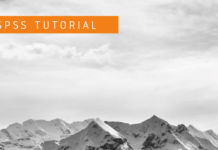If you are reading this article it can only mean one thing: You are finishing or have finished your thesis and soon will have your colloquium! (Also called “viva” or “oral defense”).
CONGRATULATIONS!
Please do not be nervous or anxious. I am here to help you. I’ve developed some recommendations for you to have a successful colloquium!
HERE WE GO!
Before Submitting Your Thesis
1. Structure and Formatting of Your Thesis
Keep one thing in mind: Supervisors and reviewers have many other duties apart from reading your thesis. They will probably read it a few days prior to the colloquium, maybe in bed watching a series or laying on the couch.
So what do you have to do? MAKE THEIR READING EXPERIENCE SMOOTH! The easier it is for them to read it, the more they will understand and better evaluate your work.
Your thesis is a long document. If the reviewer gets lost your evaluation will be compromised.
Here are some reminders:
a) Structure
- The way you structure (organize) your thesis will influence how reviewers will read and evaluate it!
- Start your literature review, methodology, findings, conclusion and limitations chapters by reminding the reader what your research aim is!
- Remember your thesis is a long document and getting lost easily happens.
- Finish each chapter with a section titled “Summary of the Chapter” in which you remind the reader what was discussed in the chapter and what the next chapter will cover.
- This should be only one paragraph long.
- Avoid super long sections at all costs. For example, sometimes in the “literature review” or “results” chapters students can often have pages and pages without any interruption. When this happens the reader will simply get lost!
- Solution: Create headings and sub-headings to facilitate the reading and understanding.
b) Format
- The quality of formatting of your thesis (the visual of it!) will indicate how much attention to detail you gave it: So your thesis must LOOK GOOD. How do you do it?
- Have well designed and labeled tables
- Have well designed and labeled figures
- DO NOT copy and paste SPSS tables or figures. Create your OWN based on the originals and reference them accordingly.
- Be consistent with formatting: font sizes, font type, etc.
- Have someone proofread grammar and language. Do not make silly mistakes here.
- Use correct referencing formats: regardless if you use Harvard or APA style, be consistent and accurate.
- If you are unsure, check these sources to help you with formatting:
2. Check Every Detail of Your Thesis Before Submitting
Video Support: Colloquium or Thesis Presentation
In case you are enjoying the article, do not forget to watch the video with further support on how to deal with your colloquium.
After Submitting Your Thesis (Before The Colloquium)
3. Read the Thesis and Take Notes
Often students will finish their thesis and not know what was written in the first chapters. This is normal, since it is a long process. You can easily forget some basic things that can be asked during your presentation. And this would be pretty embarrassing.
Thus, make sure to read the thesis and take notes on important sections!
4. Have a Killer Presentation
You will have around 15 minutes to present your topic at the start of your colloquium. This is where you must impress the panel! Thus, make sure to:
- Only discuss the main points of the thesis. Reviewers have already read it, so there is no need to remind them of every detail. Just focus on what is really important!
- Have visually appealing slides. Do you like classes where the lecturer has slides only with text, inconsistent font sizes and fonts? We don’t either. Show that you took time to work on it and develop nice slides!
- Bring the slides printed for the panel. It will indicate to them that you thought of every detail.
- Keep track of time. Rehearse at home many times until you are confident you will not go over the time limit.
- Have a professional mindset. Dressing up nicely and being careful with your choice of words will send a nice message.
5. How to Answer Questions
Most likely reviewers will ask three types of questions:
- a) Questions you MUST know the answer to. These are questions related to your topic and are for you to show evidence of how much you know your topic. They might involve your theoretical background, choice of methods, results and so on. Have fun showing how smart you are!
- b) Questions you MIGHT know the answer to. These are questions to test your overall knowledge. They might not be exactly related to your topic. In such situations, you may say “I am not 100% sure, but I believe that…” and you can develop a thought connecting concepts based on previous studies!
- c) Questions you DO NOT know the answer to. These are questions to test your honesty! In such cases, simply say: “I do not know“. Honesty in science (just like in life) is extremely important. If the reviewers get the feeling you are making things up they might assume the same for your entire thesis. There is no problem at all in saying “I do not know” if the question does not relate to your study or you simply do not know the answer to it.
6. Personal Attitude
Put yourself in the place of the reviewer: You have a PhD and have been studying the topic for years and here comes a student with an attitude of pretending he/she knows it all. How would you feel?
Exactly! Be humble and have a friendly attitude. In science we are permanently learning and no one knows it all. So please don’t pretend you do!
7. Have Your Printed Thesis with You!
Your reviewers spent a long time reading your thesis and there is a great chance they make comments such as: “On the third paragraph of page 47 you mention that…“.
How will you answer this question if you don’t have the thesis printed with you? If you don’t have your thesis with you the reviewers will get super annoyed about it and you won’t be able to answer the question properly.
So make your life easier by having it with you so that when a question is asked about a specific part or page of the thesis you can open it and answer it properly!
8. Have the Presentation File Available In different Locations
Imagine the scene: The room is ready and the reviewers sitting in front of you but the laptop does not open the file on your USB stick. PANIC!
You would not believe how often this happens. And the consequence is that the student loses time, gets even more stressed and may have a horrible start.
The easy solution is to simply have your file available in multiple sources. Example: USB stick, on your email, and on a cloud account (Dropbox or iCloud).
Finally, also bring your own laptop just in case you need it.
9. Enjoy It!
The colloquium is usually the final task that you have at the university. It represents the end of a journey. So enjoy it, have a smile on your face and let the reviewers notice how happy you are to be discussing with them a topic that you chose and have a passion for!
Reminder for Your Wall
In order to help you with the process I have made a list with reminders that you can download and post on your bedroom wall, office or wherever you work so that you don’t forget any of the key points for your colloquium.
DOWNLOAD: LiveInnovation.org - Colloquium Reminders.pdf
And GOOD LUCK!
I truly wish you all the absolute best!
And if this was useful to you, please share your story with us!





